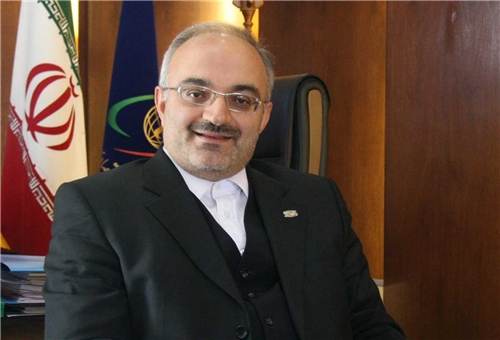 TEHRAN (FNA)- Iranian Deputy Economy Minister Behrouz Alishiri underlined the upward trend of foreign investment in Iran despite the US-led unilateral sanctions against the country.
TEHRAN (FNA)- Iranian Deputy Economy Minister Behrouz Alishiri underlined the upward trend of foreign investment in Iran despite the US-led unilateral sanctions against the country.Alishiri pointed to the willingness of foreign investors to return to the Iranian market, and said, �The negative effects on (the economies of) the countries that have imposed sanctions on Iran have been much greater than Iran and we have learnt big lessons from the sanctions, including quitting oil-dependent economy as has been required by the Fifth Five-Year Economic Development Plan (2010-2015).�
He pointed to the� programs of the Iranian Investment Organization for attracting further foreign investment in the next Iranian year (starts March 21, 2014), and said, �Dispatching economic attaches to target countries to persuade and enhance attraction of foreign investment, paving the way for the visit of World Bank experts to Iran, holding joint economic commission with China � are among the organization�s measures.�
Head of the Trade Development Organization of Iran Valiollah Afkhamirad underlined on Monday that implementation of the Geneva nuclear deal sealed by Iran and the Sestet of the world powers late in November has provided very good opportunity for the presence of international investors in Iran.
�After Geneva deal with the western governments, a suitable atmosphere has been provided for activity of investors in Iran and they have become highly interested in business with Iran,� the Iranian official said at a meeting of Confederation of the Asia-Pacific Chambers of Commerce and Industries.
Afkhamirad further said that if the foreign investors register their company in Iran, they will enjoy equal terms with Iranian companies.
He said that free trade zones and special economic zones would put good facilities at the disposal of foreign investors and economic activists.
On November 24, Iran and the world powers sealed a six-month Joint Plan of Action to lay the groundwork for the full resolution of the West�s decade-old dispute with Iran over its nuclear energy program. In exchange for Tehran�s confidence-building bid to limit certain aspects of its nuclear activities, the Sextet of world powers agreed to lift some of the existing sanctions against Tehran and continue talks with the country to settle all problems between the two sides.
Then after several rounds of experts talks on how to enforce the agreement, Iran and the six major world powers finalized an agreement on ways to implement the deal.
On January 20, a confidential report by the International Atomic Energy Agency (IAEA) said that Iran has halted its 20-percent enrichment activity under a ground-breaking deal struck with the six world powers in Geneva late in November, paving the way for the easing of some western sanctions against Tehran.
By Fars News Agency
The Iran Project is not responsible for the content of quoted articles.











